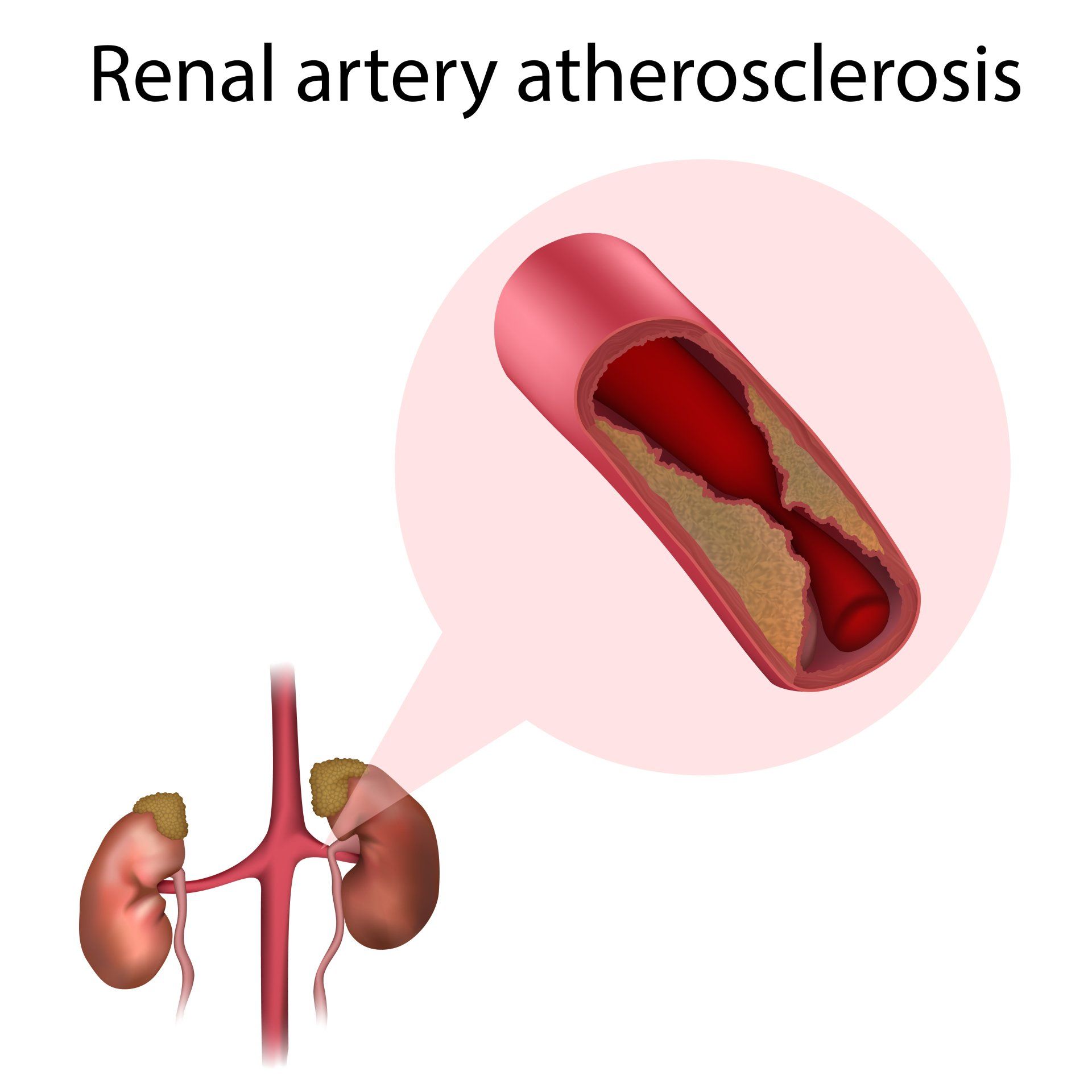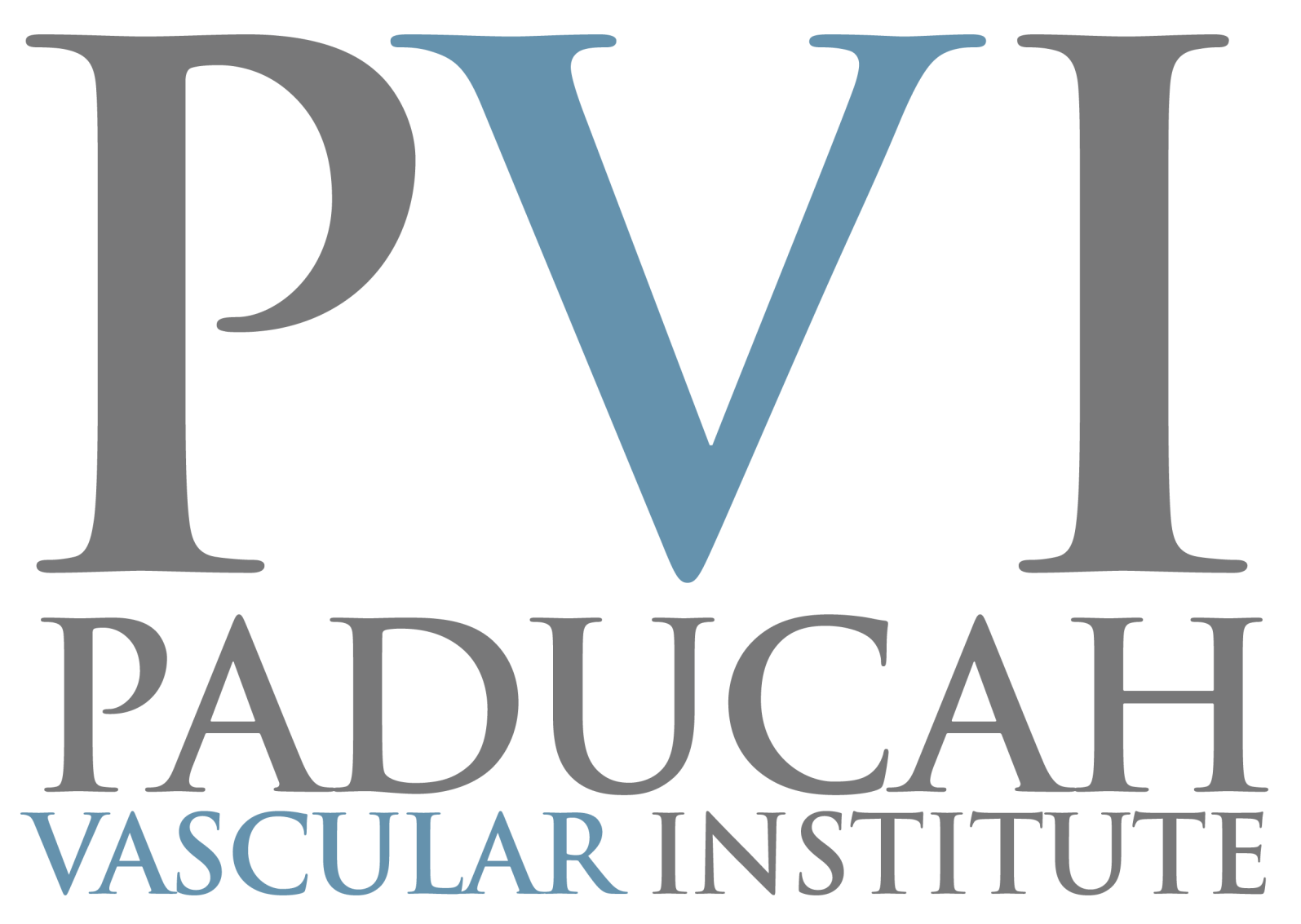Renal Artery Stenosis

Renal artery stenosis most commonly occurs when plaque slowly builds up in the arteries that lead to the kidneys. In younger people, a condition called fibromuscular dysplasia (FMD) can cause narrowing in the kidney arteries.
Risk factors include cigarette smoking, diabetes, obesity, high cholesterol, high blood pressure, and family history of coronary artery disease (CAD) or peripheral vascular occlusive disease (PAD).
Symptoms
Renal artery stenosis is usually asymptomatic (no symptoms). But the narrowing in the arteries leading to the kidneys can cause high blood pressure. The kidney is starving for oxygen/blood flow so it responds by releasing an enzyme into the blood stream to increase the blood pressure. It can also lead to kidney insufficiency and rarely renal failure.
Diagnosis
Renal artery stenosis is usually diagnosed with ultrasound/duplex, CT scan or arteriogram.
Treatment
Most commonly, treatment is non surgical consisting of blood pressure medications, cholesterol medications, exercise, weight loss, and aspirin or plavix.
If the renal artery stenosis is severe and causing poorly controlled multiple medication high blood pressure or poor kidney function, you may be referred to a vascular surgeon. Treatment usually consists of an arteriogram of the renal arteries with stent placement (balloon angioplasty only if the narrowing is caused by FMD. Rarely, bypass may have to be performed in the operating room.


